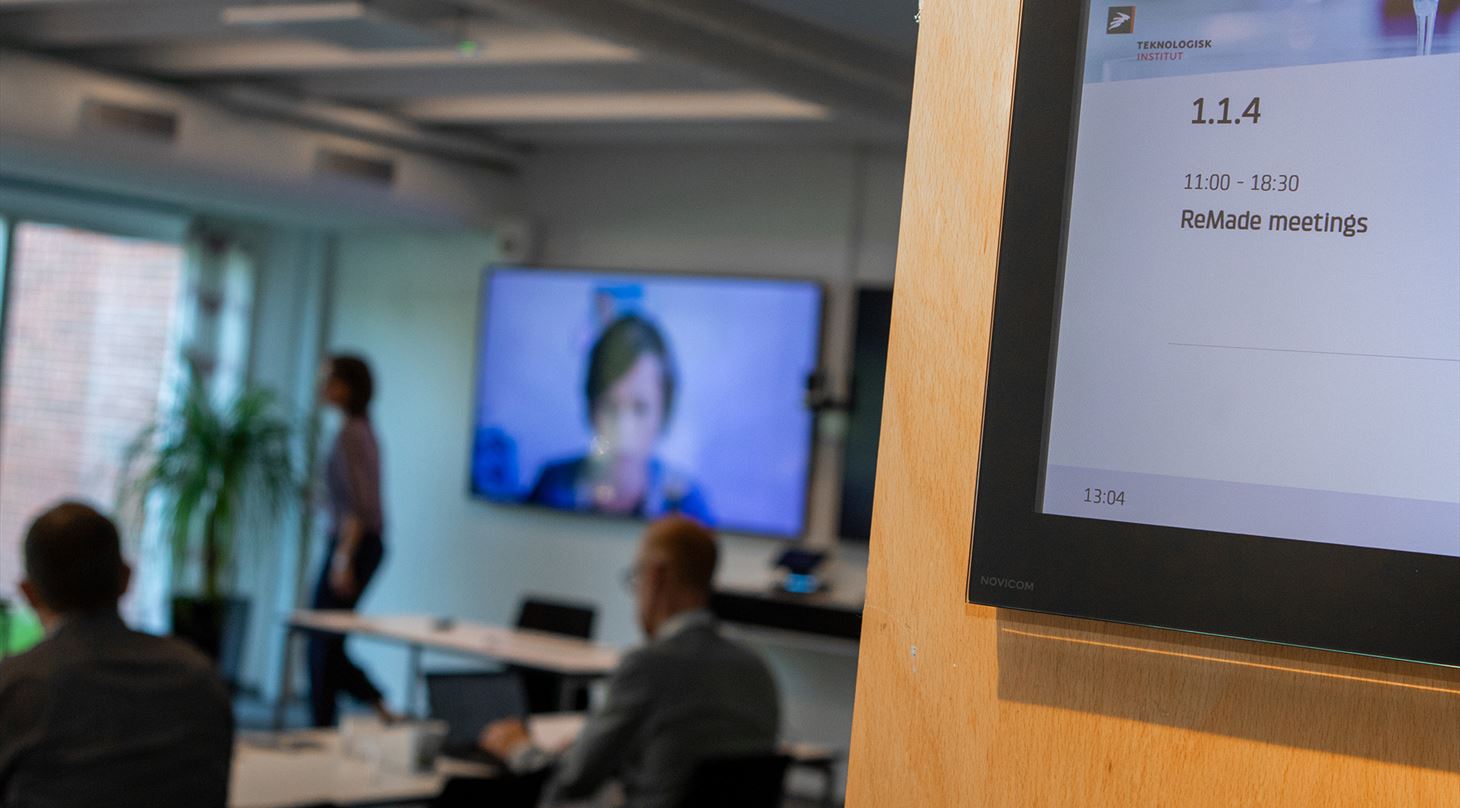
Research and development projects within advanced characterization
At the Danish Technological Institute, we participate in a number of research and development projects within advanced characterization - both Danish and European.
In these projects, we draw on our extensive knowledge of characterization techniques and our extensive network in both industry and the research world. Below you can see a selection of the projects.
RITIFI: Strengthening the industrial service offer by integration and collaboration
The RITIFI project aims to strengthen the integration and collaboration between European Research Infrastructures and Technology Infrastructures, enhancing their value for research, innovation, and industry across Europe.
Funded by: Horizon Europe
Read more
ECem: Electrification of cement production for significant CO2 reduction
The ECem project is developing and testing two new electric heating technologies—infrared and inductive heating—as alternatives to fossil fuels in cement production. The goal is to electrify key processes, reduce CO₂ emissions, and strengthen the industry's green transition.
Funded by: Innovation Fund Denmark
Read more
InnoMatSyn: Integrating the European Advanced Materials innovation ecosystem
The InnoMatSyn project aims to establish a coordinated and interconnected European ecosystem for Advanced Materials and 2-Dimensional Materials research and innovation.
Funded by: Horizon Europe
Read more
ReMade@ARI: A network of 50+ advanced analytical facilities in Europe
ReMade@ARI creates a single access point to 50+ European analytical research infrastructures. It supports the development of recyclable materials for a circular economy, fostering innovation in key product value chains.
Funded by: Horizon Europe
Read more
HyFly: Green energy storage with efficient flywheels
Flywheels are an energy storage technology with great potential in the transition to green energy from intermittent sources. In the HyFly project, these systems are being improved to increase energy density making them a more sustainable and cost-effective solution.
Funded by: Innovation Fund Denmark
Read more
Highway for Material Knowledge
Highway for Material Knowledge (Motorvej for Materialeviden) creates a national network to bring the latest material knowledge to Danish small and medium-sized enterprises. This will improve the companies' products and processes, thereby enhancing Denmark's competitiveness.
Funded by: Danish Industry Foundation
Read more
ZEROSTEEL: CO2-neutral steel production with innovative processes
9% of the world’s total CO2 emissions come from steel production. Since steel will remain an essential raw material in the future - particularly in the expansion of green energy solutions like wind turbines - it is vital to transition steel production to become CO2-neutral. Therefore, ZEROSTEEL aims to develop cheaper and less resource-intensive methods for steel production.
Funded by: Horizon Europe
Read more
LC-H2: Low-cost hydrogen production with high-efficiency alkaline electrolysis
The increasing demand for green hydrogen means that there is a crucial need for cost-effective and scalable technologies for green hydrogen production. The LC-H2 project aims to revolutionize the market for green hydrogen by improving the efficiency of alkaline electrolysis cells and thus reducing the production costs per liter of green hydrogen.
Funded by: Innovation Fund Denmark
Read more
SOLID: Hard materials in 3D
The ESS (European Spallation Source) lighthouse SOLID has been established as an interdisciplinary initiative to develop and strengthen the Danish research applications of large-scale facilities regarding imaging with a special focus on ESS. SOLID focuses on visualizing and quantifying internal structures in hard materials in 3D and on all relevant length- and timescales based on neutron and X-ray imaging. This will make a new generation of multiscale material models and the development of new tailored materials possible.
Funded by: Ministry of Higher Education and Science
Read more
Previous projects
EASI-STRESS – European Activity for Standardisation of Industrial Residual Stress Characterisation
The EASI-STRESS project standardizes measurements of residual stresses in metal components, providing the industry with competitive advantages such as increased lifespan, reduced material consumption, and shorter development time. The project focuses on non-destructive 3D stress tensor measurements using synchrotron X-ray and neutron diffraction to bridge the gap between academia and industry by validating techniques, formulating protocols, and initiating an industrial measurement service.
Funded by: European Union’s Horizon 2020 programme
Read more
Composites for green defense
In the project "Composites for Green Defense", we are working together with Censec and a consortium of Danish composite manufacturers to explore how the use of composite materials and improvements in the production chain can result in a smaller climate and environmental footprint. Here, we investigate the potential of utilizing machine learning to design new composites with specialized properties. At the same time, we employ advanced characterization methods to better understand the composition and fracture points of specific composite materials.
Funded by: EU and Censec
Read more
RTI Summit 2025
A 10-month project that brings together decision-makers, businesses, and researchers to strengthen Europe’s research and technology infrastructures through a new European RTI strategy focusing on innovation, quality, and the green transition.
Funded by: EU and Novo Nordisk Foundation
Read more (in Danish)